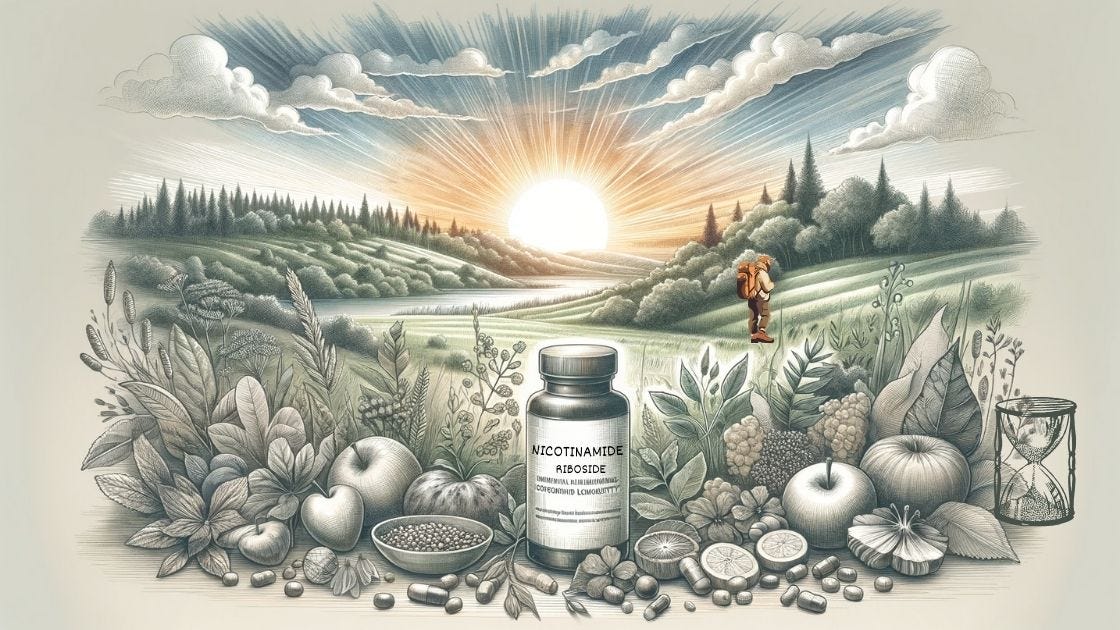Hi there,
There's a common theme when reading research studies -- this or that important molecule "declines with age".
One of those "declining with age" compounds is NAD+ (nicotinamide adenine dinucleotide), which is found in every cell in the body.
Its most important role is in the mitochondria as part of the mechanism for ATP (energy) production. NAD+ is used over and over again in the transfer of electrons that are used in ATP for cellular energy.
Beyond cellular energy, NAD+ is used in a number of other ways, including for the function of sirtuins and in the immune system with CD38 and CD157.
CD38 is a key to why NAD+ levels decline with age. CD38 can act as a receptor on immune cells or as an enzyme inside cells. Reactions with CD38 consume NAD+ instead of just recycling it by moving electrons.
Inflammation, which increases with age, causes CD38 levels to rise, resulting in a decrease in NAD+. When NAD+ levels decline, mitochondrial function declines, and, well, everything in the body seems to eventually fall apart.
Here's a graphical abstract that sums all this up beautifully (from this study - open access):
The good news is that there are Lifehacks for increasing NAD+ levels in aging. For example, there are two supplements, NR (nicotinamide riboside) and NMN (nicotinamide mononucleotide) that can raise NAD+ levels in aging. I'll let you read about the research on each of these, as well as other ways to increase NAD+, in the article below.
Wishing you all a Happy New Year!
~ Debbie
Nicotinamide Riboside and NMN: Boosting NAD+ in Aging
Key takeaways:
~NAD+ is a critical coenzyme, utilized in every living cell and essential for numerous cellular functions.
~ NAD+ levels decrease with aging, and this is thought to be one of the key reasons for many age-related declines.
~ Nicotinamide riboside (NR) and nicotinamide mononucleotide (NMN) are available as supplements and increase NAD+ levels.
~ Genetic variants impact the body’s production of NAD+ and related genes.
This article digs into the science of how NR and NMN work, the research that has been done on NR and NMN, and then explains the connections with aging of sirtuins, PARPs, and CD38 or CD157.
What I've been reading:
This is a new meta-analysis that combines data from several previous studies on multiple sclerosis genetic risk and CD58 variants.
Updated Genetic Lifehacks article: MS Genes: Decoding the genetic risk factors in multiple sclerosis
2) Biological Effects of Magnetic Storms and ELF Magnetic Fields
This is an overview article on research studies on the biological effects of time-varying magnetic fields, including magnetic storms and extremely low frequency (ELF) magnetic fields. I freely admit that I need to read it again and relearn some physics concepts to fully understand it. It's been a long time since I took physics in college.
The Earth's magnetic field affects life on Earth in a number of ways, including influencing the expression of core circadian genes in migrating animals. There's also a human orthologue of the magnetic receptor gene that's involved in mitochondrial function, which I'm going to have to dive into further. The article also explores the research on magnetic fields generated by power lines and transformer substations. It seems like a solid overview, including the impact of geomagnetic storms on platelet aggregation and blood flow. If you want to know what is going on right now with magnetic storms, check out SpaceWeather.com, and if you live in the far north, I like the Aurora Forecast app for alerting me to possible northern lights viewing.
I've had a number of members request that I write about EMF and 5G and such, and I'll get there eventually. I want to first understand the research on the natural magnetic fields (and the link to circadian rhythm and its effect on melatonin production) before I dive into the non-native electric fields. (Here's one more interesting study, if you're interested in melatonin, WBC count, and geomagnetic activity.)
Did someone share this newsletter with you? You can subscribe here to get it each week in your inbox:






